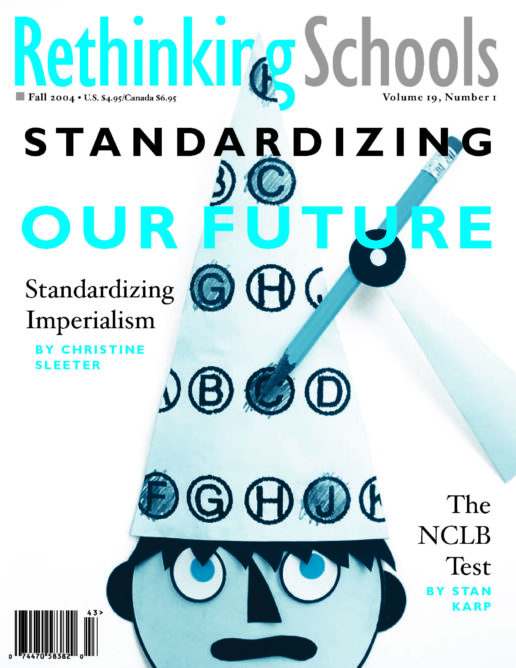The Power of First-Person
Illustrator: Whitney Sherman

Most educational writing is done in the abstract third person, as if there were no writer present. But the authors of two new books, I Am a Pencil and The Big Picture, write persuasively in the first person. Their pedagogical suggestions are enhanced by their experience and sensitivity.
I Am a Pencil documents the three years Sam Swope spent as a writer-in-residence in an elementary school of predominantly immigrant children in Queens, N.Y. Swope fell in love with his class of third graders and became a passionate, committed teacher and mentor. He also became a learner as the students and their parents shared their lives, insights, and creative work with him.
There are really two books here — an insightful account of how to teach poetry and writing in elementary school and a personal story of the joys and pains of full engagement in the lives of children who are trying to make sense of the troubling, often unsafe world they encounter every day.
One of Swope’s exercises included asking students to write metaphors of themselves. Fatma wrote:
I’m a book
and my cover is ripped
and my back is dirty.
But the beauty of my pages
And the story is still there.
Swope’s book is full of complex and painful stories, lessons that can be used by anyone who teaches writing and literature.
The second book, Dennis Littky’s The Big Picture, is Littky’s story of how he and his colleague Elliot Washor developed the ideas and practice that have led to the wonderful Metropolitan Regional Career and Technical Center (The Met) they run in Providence, R.I., and have reproduced in other parts of the country.
I first encountered their work when Dennis was principal and Elliot assistant principal at Thayer High School in Manchester, N.H. The school, which served working-class students, had the students engaged in creative projects, community activities, and internships. Students also participated in managing and governing the school. Part of the school’s success rested on the “personalization” of learning. Students and parents help design the students’ learning programs in collaboration with the staff, who are called advisors rather than teachers.
In The Big Picture, Littky illustrates how this personalization of learning can be achieved on a schoolwide level. He doesn’t talk simply about how to teach but about how to organize a learning environment that facilitates individual development, social responsibility, sensitivity, creativity, and intelligence.
This is a tall order, and Littky does not provide a formula so much as a travelogue that shows through stories, student work, pictures, and even exercises how to begin to move toward the goal of personalization of learning.
The book is a delightful provocation for educators, one that should make many people rethink how they go about organ izing schools to facilitate learning.
The Big Picture
By Dennis Littky, with Samantha Grabelle (Association for Supervision and Curriculum Development, 2004). $26.95.
I Am a Pencil
By Sam Swope (Henry Holt, 2004).
320 pp. $17.

